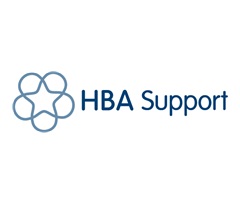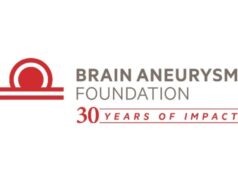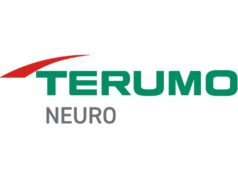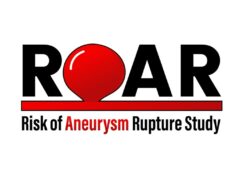 Hereditary Brain Aneurysm (HBA) Support—a not-for-profit organisation providing information and support for individuals and families affected by hereditary brain aneurysms—has announced the upcoming launch of multiple projects intended to improve care and support for patients with familial brain aneurysms.
Hereditary Brain Aneurysm (HBA) Support—a not-for-profit organisation providing information and support for individuals and families affected by hereditary brain aneurysms—has announced the upcoming launch of multiple projects intended to improve care and support for patients with familial brain aneurysms.
In addition, the organisation is currently building up a campaign referred to as ‘Hope on the Horizon’ to “throw a light” on ongoing research efforts in this space, and is looking to transition from a community-interest company to a registered charity in the near future.
“We are incredibly excited to announce that—thanks to funding and support from Medtronic, and leading research company Costello Medical—we have two exciting patient/research and support projects that will get underway this autumn and, we hope, will have a meaningful impact on patient care,” said HBA Support founder and chief executive officer Rebecca Middleton.
HBA Support recently secured funding from Medtronic to develop the ‘HBA Patient Guide’—a booklet “written by people living with the condition, for people living with the condition”, with additional support from UK National Health Service (NHS) neuro specialists. Samir Matloob and Catherine Lamb (both Oxford University Hospitals NHS Foundation Trust, Oxford, UK) are among the clinicians who, alongside three patients and a genetic counsellor, have already been added to the project’s steering committee. According to HBA Support, this project will be delivered over the autumn of 2024, and a full promotion and awareness campaign will be developed to promote the launch of the guide in the early part of next year.
“As one of the busiest neurovascular services in the UK, we’re delighted to be involved in the HBA Support patient guide,” Matloob stated. “Patients and their families with a history of hereditary brain aneurysms are usually most anxious about their risks and management options. Reliable resources are limited and so we are committed to supporting our patients who have been diagnosed with familial disease, and we are confident the new guide will be valuable in informing patients going through diagnostic screening and onward care.”
“The accessible patient guide will provide essential information, tips and advice,” Middleton added. “It’s a collaborative project, and we hope to work in partnership with patients, NHS clinicians and a specialist medical communications agency to develop content and produce a guide that can be used by patients and neuro specialists up and down the UK. We’re encouraging patients from up and down the country to get in touch, make a difference and share their valuable experience.”
Having successfully applied for pro-bono research support earlier this year, HBA Support is also working with research partner, Costello Medical, in an attempt to take a closer look at the pathway for patients with suspected familial brain aneurysm syndrome. The eventual goal here is to explore the gaps and inconsistencies in current practice across the UK—and highlight any improvements that could be made—from a patient perspective.
“The NICE [National Institute for Health and Care Excellence] guidelines outline that only patients with two or more first-degree relatives with subarachnoid haemorrhage are eligible for screening,” Middleton commented. “However, anecdotal evidence suggests that the clinical application of the guidance is more appropriately tailored to patient need and family circumstances in some cases, but not all, leading to inconsistency.
“Our project will first look across the current pathway and screening guidelines before we explore how we could move forward and collect patients’ lived experience. We hope to align our work with the ROAR research team’s aims and explore how best this could be improved for all parties. The project outline is being further refined in partnership with Costello Medical. It’s still early days, but we’re excited to explore this important topic for our community, review the guidelines and eventually explore the patient experience.”
This year, HBA Support is also collaborating with investigators from the ROAR study—a multicentre research effort taking place in the UK with the goal of gaining an improved understanding of brain aneurysm rupture risks. The three key purposes of ROAR are as follows: to validate the accuracy of the PHASES score for predicting five-year rupture risk; to develop a rupture-risk prediction model incorporating additional variables; and to determine the pattern of rupture risk beyond five years.
Diederik Bulters (University Hospital Southampton NHS Foundation Trust, Southampton, UK), chief investigator for the ROAR study, recently became a trustee for HBA Support.
“I’m delighted to become a trustee of HBA Support, who provide much-needed support to families in the UK with familial brain aneurysm disease,” Bulters said. “I’m looking forward to supporting their journey as they develop as a charity. We are also pleased to work with Rebecca to bring the patient experience into our ROAR study and beyond, as we look forward to the next stage of the research that could significantly expand our knowledge on the genetic component of aneurysm disease development and rupture. As a patient-focused organisation, they understand the devasting generational impact of the disease, and we welcome the opportunity to work with HBA Support as we explore the natural history and heritability through our ROAR studies.”
In tandem with these research and patient engagement projects, HBA Support is also currently marking a two-year milestone and looking back at the “significant progress” it has made in that time—as well as planning for its transition from being a not-for-profit, community-interest company to securing registered charity status.
David Salmon, HBA Support’s community engagement manager, commented: “We’re delighted to mark our anniversary and look back at the progress we have made in the past two years. We’ve helped lots of families through their journeys, built a growing community, and developed important partnerships and relationships with clinicians, medtech companies, charity partners, NHS partners and researchers. We’ve built HBA Support from the patient up and, to support our commitment to good governance and sustainability, we have decided to move from a community-interest company—a not-for-profit organisation—to a charity. This will open more fundraising doors for us and ensure we keep the voice and interests of patients at the heart of our organisation. We’re delighted and lucky to have a group of experienced trustees with us on this journey, including Prof Bulters, who will support and guide our further growth.”










